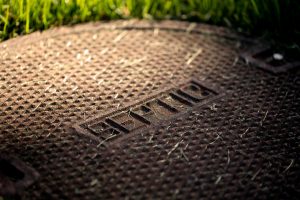 Caring for a septic system during the winter months requires your attention. There’s never a good time for septic tank problems, but the winter months can be particularly brutal on your system. Understanding how to prepare for freezing temperatures and what to do when issues arise can help save you money and keep your septic tank flowing smoothly throughout the winter. Follow these septic system care tips to avoid emergency repairs costs in the frigid months.
Caring for a septic system during the winter months requires your attention. There’s never a good time for septic tank problems, but the winter months can be particularly brutal on your system. Understanding how to prepare for freezing temperatures and what to do when issues arise can help save you money and keep your septic tank flowing smoothly throughout the winter. Follow these septic system care tips to avoid emergency repairs costs in the frigid months.
Steps for Winter Septic Tank Care
- Pump the septic tank. It’s a good idea to have solid waste removed before freezing temperatures hit. How often you pump your septic tank depends on the tank’s size and how much waste your family generates. On average, most tanks are pumped every 3-5 years. Contact a licensed professional to determine how often your tank should be pumped.
- Schedule septic tank inspection. If it’s not time to have your septic tank pumped, schedule a routine inspection with your local professional plumber. You want to detect any cracks in the system before the ground begins to freeze and thaw again. The tank will naturally expand and shrink in size with the fluctuating temperatures. Any untreated cracks could cause your tank to burst.
- Inspect vegetation over tank. If you recently had a septic tank installed or repaired, the lawn and plant growth over the tank may not be enough to prevent freezing. Consider adding sod, dry soil or mulch over the tank to create more insulation. This preventative measure could save you from a large repair bill caused by a frozen septic system.
- Plan for irregular use. If you own a vacation or vacant rental property that operates off a septic system, have the tank pumped before freezing temperatures hit. You’ll also want to winterize the pipes to prevent freezing and burst pipes. Inspect the exposed pipes ahead of the winter months to ensure they’re in good condition. Have a professional plumber perform a sewer camera inspection to get a look at the inside of the pipes and detect cracks or holes in underground pipes.
- Prevent compact snow on top of tank. If you live in a snowy climate, have snow removed before it can become compact over the septic tank area. Don’t drive over the snow that sits above the tank and avoid any winter activities, like sledding, that may pack the snow. The weight of the compact snow could potentially damage the tank.
Septic Tank Preventative Maintenance
Scheduling preventative maintenance for your septic system is the best way to protect it through the winter months and extend the life of the tank. Keep track of your inspection and pumping schedule to ensure your system works properly year-round.
